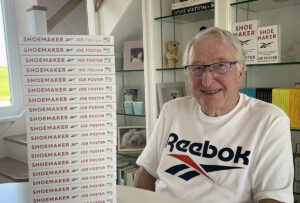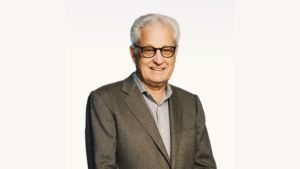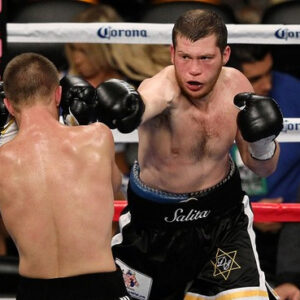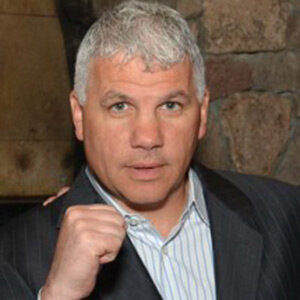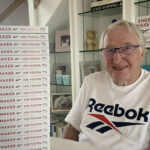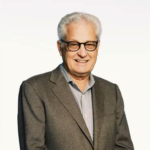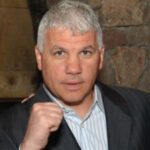Click below to view this episode's trailer.
Listen on your favorite podcast network.
One of life’s complexities is the need to be needed. You make a common mistake when you need to have a role in other people’s lives. Rebeccah Silence talks about this on the Tougher Together Breakthrough podcast. She lets us know that it’s okay to care and natural to want to help, but it’s a fine line between helping people with what they need, as opposed to making it about you and what you need.
When we NEED to be needed, we typically get a result that’s different from our intention. We push people away when our ego becomes involved, and we come across as needy.
Most people are not looking to be saved but to be seen, heard, and held capable. Beware of lowering the bar with those you want to help. Adopting a victim mindset will not help them at all, so don’t approach them from that angle.
Don’t let your best intentions turn into a “take” instead of a “give.” Help in a way that empowers and do so without attachment to outcomes. Focus on connection to build possibilities for others.
Rebeccah takes some questions on this and other topics and gives insightful answers to wind up this heartfelt podcast episode.
Rebeccah Silence, is a speaker, coach and international media personality, who survived cancer while pregnant and has impacted hundreds of thousands of listeners through her radio programs and appearances. She is the Creator of the HEALING IS POSSIBLE movement and courses and is committed to helping others heal their traumas. As a certified world-class Emotional Healing Coach, Rebeccah is uniquely qualified to facilitate breakthroughs to wellness and transformation while she inspires hope and possibility in even the most challenging times. She is best known for healing heartbreak, and her clients frequently tell her that she brought them “back to life”!
TRANSCRIPT
Have you ever found yourself needing to be needed and not knowing what to do with yourself if you weren’t needed by other people? That’s what we’re taking on today.
We’d like to thank our generous sponsors, Mint Home Loans, and The W Home Group of Next Step Realty for making this show possible.
So, what is a breakthrough? It’s finding your way out of suffering and stuck. It’s that feeling of new energy, renewed life and excitement. When I was seven months pregnant with my second baby, I received a life changing diagnosis. I had cancer. When I told my older daughter, she said “So, you’re going to die?” And the only thing that saved my life during that time was knowing how to emotionally break through. Welcome to the Tougher Together, Breakthrough podcast. I’m your host, Rebeccah Silence. I’m a speaker, coach and the creator of Healing is Possible. In each episode I prepare you for life no matter what challenges you’re facing. I’m going to invite you into the stories of real people who are living life in breakthrough and making the world a better place. If they can do it so can you. Breakthrough is your right. Get ready to break through. Get ready for the rest of your life.
You’re listening to the Tougher Together, Breakthrough podcast with me, your host, Rebeccah Silence, and today we’ve got a topic that I honestly believe applies to everyone. And that topic is the topic of needing to be needed. Have you ever been there feeling like if other people didn’t need you or want you or lean on you, then you didn’t have a role or a job description in that relationship? There were so many years in my earlier career and even throughout my entire career where working with people, working with teams, and even in personal relationships, I found myself needing to be needed, wanting to be the one that other people relied on. And I think for those of you that can relate, this is really a good thing in that if this sounds like you too, then you’re a giver; you care; you want to help; you want to make a difference. There’s absolutely only healthiness when it comes to caring and helping and wanting to make a difference, but when we need other people to need us it builds a wall and it pushes people away, and it’s actually really unattractive and in leadership development and training especially, that’s where I’ve learned this lesson the most and it’s not been an easy lesson; it’s been a really hard one. There are so many people that I wanted to help in that I cared about and then when I needed them to need me in my guidance… Here’s the hard truth, it was no longer a give or a gift for them, because the second we want to be needed, it’s just about me. It’s just about the person that’s needing to be needed. It’s no longer about the person that you’re trying to support, that you care about. And, you know, to anyone that I’ve been needy with or even rigid with because I thought I knew the way for them, my deepest condolences.
And, you know, to those of you listening, let’s really just lighten up this heavy topic for a second and consider the possibility that you don’t need to be needed. You just get to show up and do your best and care about the person in front of you. That’s the goal, is to care, to help, to support, to serve, not for your ego to get validation. And when we’re needing to be needed, that’s exactly what’s happening. We’re needing our ego to be validated. And our ego just means the survival personality part of ourselves that is in a lot of fear. And when we need to be needed, at least we know that there’s a role for us, that there’s something to do, that there’s a place for us in that relationship. But the problem is that needing to be needed, quite literally, can tear relationships apart. In my master’s degree, when I got my master’s in counseling, my very first class, my very first night in grad school, I remember sitting in the classroom with a brand-new group of peers and a brand-new professor. I hadn’t met any of these people before. And the professor said to us, if you’re here because you think it’s your job to save people, there’s the door. Remember my job, basically hitting the ground with a thump and I couldn’t believe what I had just heard, like, of course I was there to learn how to save people, and that was the point. That’s why I was getting a master’s in counseling, because people were in pain and people were in suffering, and I could help and I was going to get a certification and a master’s degree to make me a legit. That same night, I relaxed into what I was being taught, and it took me decades to really get it, and I still don’t know if I fully have this down, but it’s a work in progress and I’m definitely closer than I’ve ever been before in understanding people don’t actually need to be saved. People want to be seen and heard and held capable.
And that’s such a difference. When we’re trying to save people, it’s like we’re seeing them like they’re a victim who needs saving. We’re treating them like they’re a victim who needs saving. And if you’ve ever helped and then had the person that you helped lash out at you later, then what you can know is that they were experiencing—it’s not your fault—being treated like a victim. Nobody wants to get treated like a victim. Even if they give you permission, and this is what I think gets so confusing and complicated for all the sensitive helpers and healers out there in the world. You’re just trying to help, like, that’s legit. That’s not you in your ego. You care. But where the ego muddies the waters is when your being with them, seeing the lesser them, speaking to the lesser them; like they need you or else. Nobody wants to be treated that way. We want the greatness in us seen and heard and honored, not the fear based lesser us, and we all have both.
We have the part of us that learned how to survive, and has fear, and is in damage control. And then we also have the part of us that is our soul that is the greatest, most inspired, highest version of ourselves. We’re all all of it, and instead of needing to be needed… First of all, what about being there for yourself, you know, for me being a single mom for years and coming out of a divorce and learning how to literally crawl again, then walk again, then run again, you know, I had to learn how to be there for me and my child because there was nobody else. Sure, I had a community of support. I had coaches and therapists. But I ultimately was where the buck stopped with me and my kid and our life together. And our dog… we had a dog named Kayla that I rescued from a humane society in Denver, Colorado, that was like the best dog and a nightmare at the same time. She moved with us 15 times in her 15 years of life. And, you know, that time in my life gave me an opportunity to recognize that I had more in me than I thought I did. That’s what I’m wanting us when we’re being there for other people to recognize; that every life in front of us is worth honoring. I don’t care what the person did. And you might be listening, and you might disagree with me, and that’s fine. I don’t need you to agree with me. But what I know is people do better when they’re seen and heard and loved and honored. And there’s no life that, in my opinion anyway, isn’t precious. And then there are behaviors and there are, you know, choices that people make that aren’t healthy that I’m not suggesting we tolerate.
But I am saying that when we recognize that there is a version of ourselves that’s greater than we give ourselves credit for, and when we meet another person or engage with another person, when we recognize that that life in front of us has greatness in it, that there’s a version of that person in front of us that is greater and tougher and stronger than likely they’re realizing, and we see that in them and raise the bar versus lowering the bar. Man, what a difference. Connection builds, and when connection builds, possibility builds. And that’s what we all want and deserve. We’re only helping because we want more possibility for the other person, for us. And so, where you can help, I want you to help and then needing people to need your help becomes a take instead of a give and becomes, actually, a wall between you and them versus the bridge. And we are tougher together, that’s the whole point of this podcast; we’re breaking through together as the toughest versions of ourselves. So, I’m not saying go do your life alone, and I’m not saying don’t help, but I’m saying help in a way that empowers; help in a way that truly serves and take the pressure off—needing to be validated, needing other people to need your help—because where your help is needed, those opportunities are presenting themselves constantly.
So go help where you can, because you can without attachment or worry about whether people see or get that you can help. We know you can help. And thank you. Thank you for helping. One of my favorite stories of working with a client, her name is Amanda, and when Amanda came to me, I had been on the radio, and a caseworker called from the residential treatment facility where Amanda was living and asked if I could help the family. She had been violent, she had been suicidal, and she had seen multiple therapists in a two-year time and had been hospitalized multiple times for safety issues. So, when I got this phone call, I just asked, you know, is the team willing to work with me? Is the parent willing to work with me? I’m willing to explore whether or not I can make a difference and help as long as the whole team is brought in and willing to work together.
And so, you know, long story short, this woman went from suicidal ideation and suicidal attempts and violent acts towards people that she was living with to getting off almost every single one of the medications that she had been on, moving into her own independent living apartment, writing a book, going to college, speaking across the state of New York for the organization and the treatment facility where she was living when she first started working with me. And the whole team rallied around Amanda, seeing her greatness, speaking to her greatness and more importantly, raising the bar. And that’s what I believe the magic was. We raised the bar. In every interaction that I had with Amanda and her mother and the team I demanded that the bar stay high. I demanded that the possibility of her healing and breaking through and getting her life back was there for her. And she ended up with the appropriate medication. She ended up getting to see that she could be independent, and that she was smart, and that she had the ability to write a book about her life, and her journey, and her healing. And the miracles that she was experiencing because of her commitment to life and healing. I’ve never met anyone that benefited from the bar being lowered for them, and we do it to ourselves all the time, but we do it for other people as well. We lower the bar and then we try to help them with a low bar, and we wonder why they pushed back. The team raised the bar for Amanda, and she met it. I get text messages from her pretty much every month with pictures and her just sharing how her life is. And during the global pandemic, she was free, she was living on her own, she has a job, college. What a gift! Raising the bar is where it’s at and letting go of a desperate need to be needed gives you room to actually relate to people and support them; support the greatest version of them.
And I want now to move in to some questions, I so appreciate the questions that are coming in. If you have questions that you want addressed on the Tougher Together, Breakthrough podcast with me, your host, Rebeccah Silence, just email rebeccah@rebeccahsilence.com. Rebeccah has an “h.” Email me your questions and we will, over the course of this podcast, address as many as we can.
The first question I have today is, how can I help my kids understand and process their emotions better? This is a great question and I think it applies beautifully to our topic today. Our kids don’t need us to tell them how to feel and process their emotions; they need us to do our own emotional work. So, what that means is model for your kids, not white knuckling it or toughing it out or being stoic or hiding your emotions. I remember coaching a client one day that was telling me about how that morning she was crying, and her daughter asked her why she was crying. And her response was, I’m not crying. Now, that’s a confusing message, and it’s one that many of us have gotten, but as parents model, healthy emotional expression model, when your child is having an emotion supporting them and feeling their way through it, you could ask: Do you need a break, do you want to go feel your feelings and let me know when you’re ready to talk? Do you need anything? I’m so proud of you for feeling your feelings right now. Do you want to talk about it? Just be a space to normalize emotional expression, as healthy, as a good thing, and then let your kids watch you emotionally process in a healthy way, so that they can see how it’s done as well. But your kids don’t need you to tell them how to feel their emotions or how to process their emotions. They just need you to be a space for it through your modeling and then not making their emotions wrong. If your child has an emotion and you say, oh, don’t cry, it shuts them down. If they have an emotion and you say, what’s wrong? You’re fine. It shuts them down. Be a space for them to feel and then show them how it’s done. Great question.
Next question, and this is awesome. This is a great question as well with our topic today. Do you use daily intentions? And if so, what is your process? So, you know, instead of needing to be needed, we could be way more intentional. And so my personal process—thank you so much, listener, for asking around intention setting—is I don’t get on a phone call or start a meeting or, you know, get into my car without intention behind it. What I mean by that, is I’m really thinking about why am I doing what I’m doing as I go throughout my day. And then I also have, like, big macro intentions. This podcast was one; getting a show out there for all of you, talking and teaching about breakthrough and connection and being the highest tougher version of ourselves. That was an intention; that was a dream that has now come to life, and I’m so grateful. Thank you so much, all of you, for tuning in and joining us for this podcast. But my intention setting process is essentially micro and macro and thinking about the why behind what I’m doing, which is very different than like, why is this thing happening? I’m not able to ever get a clear answer to why what’s happening is happening, but I can get a clear answer around before I make a choice, do I know why I’m making that choice? So, think about what are your big intentions, what is it that you want? What is it that you’re chasing after? Because that automatically gives you a vision and a focus and control over your life. But then also in the day to day, instead of just doing what you’ve always done or checking off the to do list or going through the motions, get intentional. Do you even know why you’re doing what you’re doing? Is the intention behind your choice, fear based? Like, needing to be needed is a fear based intention. Or is it inspired and powerful? You get to choose. That’s a great question.
Third question. Oh, my goodness, this is a good question as well. Is there a shortcut for healing past trauma or do I have to relive it to find closure? So number one, in my experience, there’s not a shortcut, but you can make it more effortless—the healing process—and to me what that means is getting out of resistance, feeling your emotions, being intentional about what you want now versus feeling like you’re in that Groundhog Day experience of the past on repeat. Those are all ways that you can heal through trauma faster. And then you’re definitely going to heal faster with a coach or a therapist or a mentor support. And then do I have to relive it to find closure? Yes and no, in my experience. So what I mean by that is you do have to go there, you do have to explore what was the emotion you wouldn’t feel. What was the story you made up about what happened? What were the needs that you had that weren’t met, that you don’t know how to get met now today because they didn’t get met then during that traumatic experience? Hopefully you’re following me. I know I’m saying a lot, but basically when we’ve got an emotional wound. A, how do we know we have an emotional wound, it still hurts. B, do we have to relive it? Well, we have to be willing to be with where we got stuck in that moment, but you don’t need to be retraumatized. And you don’t have to relive what happened, but you do have to be willing to explore and heal your way emotionally through it so that you can come out the other side. And when we don’t do our emotional healing work, we just stay in our patterns. And then that’s really the ultimate, I think, reliving of the trauma; staying in the pattern, staying stuck, staying in a very limited possibility that this is just the way it is, I have to manage this now for the rest of my life because of what happened. I firmly believe that you can heal what many would say you can only manage. You know, I’ve healed through childhood abuse. I’ve healed through a violent first marriage. I’ve healed through having to go bankrupt after that divorce. I’ve healed through the emotional trauma of being pregnant with cancer and coming out the other side. And those are just a handful of examples. But those things that once haunted me, they don’t haunt me anymore. And what’s haunting you doesn’t have to haunt you anymore. And you’re going to have to be willing with the support of a guide. Don’t try to do this by yourself, please, to go back to where you got stuck and do some processing. But you don’t have to be retraumatized. And if you don’t go and get that support, then chances are you’re reliving the pattern in different costumes with different characters over and over again.
Anyway, ask them questions. Last one for today, what is the most surprising thing people would need to know about letting their guard down? That is an incredible question. And I think when we let go of needing to be needed, that’s one way of letting our guard down that need to be needed actually keeps us guarded and desperate and unavailable for an actual relationship. So, here’s what I would say the most surprising thing people would need to know about letting their guard down is: the more you let your guard down, the more room you have to receive love and joy and possibility. I think many people think that if they let their guard down, they’re exposed, they’re at risk, they’re vulnerable. But what is real is you are vulnerable. But what you’re vulnerable towards when you let your guard down is more relationship, more intimacy, more connection. And when I’m saying intimacy, I’m not talking sex. I’m talking about your soul connecting to another person’s soul or your soul connecting to a group of people’s souls. You can’t connect on a deeper soul level with your guard up. So, the way to get less tired, you know, so many people are exhausted and tired, and I think that has a lot to do with our guards being up. That’s a very big job to have to stay guarded, to have to be, you know, on guard. That’s a lot of work. And so, a way to get reenergized and reconnected to yourself and other people is to let that guard down. And what I think you would find surprising is how much joy is on the other side of that. Not pain; joy is on the other side of you being willing to let your guard down.
There is life beyond needing to be needed and your life is waiting for you to live it. This is Rebeccah Silence, host of the Tougher Together, Breakthrough podcast. Honored to have you joining us on your healing journey, on your journey of living your most beautiful, precious life. Thank you for tuning in and we’ll see you soon.
Please note that the content of this podcast is not meant to be therapeutic or to replace any personal growth work that you are already doing with a coach, therapist, or mentor. Take the content, have it inspire you, and then keep working with your support system. Breakthrough is your right. Breakthrough reminds us that we’re tougher together and that we’re connected to possibility even in the most challenging and possibly darkest times. I’m Rebeccah Silence, creator of Healing is Possible and proud host of the Tougher Together, Breakthrough podcast where we come together and we tell stories of real breakthrough that exist for you as well. Get ready to break through, get ready to live more free, and get ready to experience more breakthrough. Because that’s your right. Join us on the Life’s Tough Media website and stay tuned for more. If you want to get in touch with me visit rebeccahsilence.com. Your time is now. Your breakthrough begins now.





